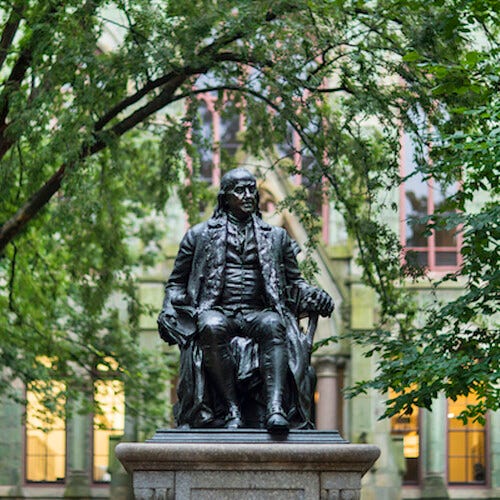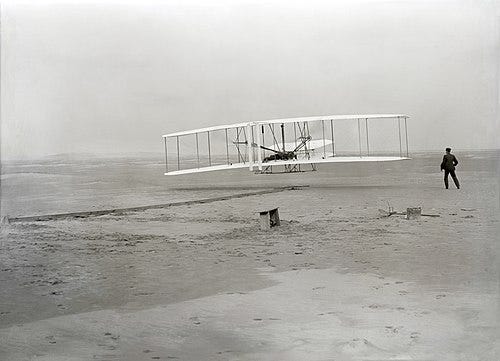Ode to the American Tinkerer
My favorite thing about this country is the feeling that you can just do things. You can just build something new if you want to. And my favorite heroes from American history are the people who did this.
Take Ben Franklin, for example. On the 4th of July, we usually credit Ben Franklin and the other founders with establishing the United States as a political entity. And sure, that’s important. But Franklin was also a founding father of the American entrepreneurial spirit. He was a scientist, an inventor, a businessman, and a philanthropist — and yes, a political leader, but that was the least cool thing about him.
And Ben Franklin just did these things. Unlike many of the other founders who were highly-educated (Adams at Harvard, Madison at Princeton, Hamilton at Columbia), Franklin only had two years of formal schooling, from age 8-10. That was it. Beyond that he was self-taught, driven by curiosity to read and learn about topics he was interested in. Just like you can just do things, you can also just learn about topics you’re interested in.

And then there was Thomas Edison. In a lot of ways, he had a similar upbringing to Franklin — very limited formal education (only a few months in school), but he was curious about the world and loved to read, learn, and experiment. Like Franklin, he started working at a very young age and learned how to be an entrepreneur by doing it (same job as Franklin too — a printing press!).
Then, while still a teenager, Edison worked as a telegraph operator, specifically requesting the night shift so that he could tinker around with the machines and do experiments while on the clock. This had mixed results. On the one hand, consider this quote from the Thomas Edison House website:
Edison requested the night shift at work which allowed him plenty of time to spend at his two favorite pastimes -- reading and experimenting. However, it was the latter that eventually cost him his job. One night in 1867, he was working with a battery when he spilled sulphuric acid onto the floor. It ran between the floorboards and onto his boss' desk below. The next morning he was fired.
Yikes! But on the other hand, Edison’s tinkering and experimenting did pay off with iterative improvements on the telegraph machine, culminating in the invention of the quadruplex telegraph, which allowed four separate signals to be transmitted and received simultaneously over a single wire. This basically set the tone for Edison’s entire life — curiosity about how something works, obsessive study, and iterative attempts at improvement (the “99% perspiration” grind).
Usually when we see a photo portrait of Edison, it’s him as an old man after a successful life. But I think this is a better portrait:
This is Edison as a telegraph operator around the age of 18. At this point, the adventure is still ahead.
And of course, there were the Wright brothers. Similar background: very little formal education (one finished high school, the other didn’t), a printing business (!!), and eventually working as bicycle repairmen. Then curiosity, self-education, hard work, iteration, iteration, iteration, and a world-changing breakthrough.
These are only a couple examples. There are many other famous American tinkerers and inventors, as well as many more who should be famous. If I had more time, I could write a whole section on how many early Silicon Valley tech entrepreneurs were similar to Franklin, Edison, and the Wright brothers — clever tinkerers, lacking in formal education but driven by curiosity to learn about the world, and extremely hard-working. And maybe I’d write about this printing press pattern, and how this seems similar to the internet. But I’m about to go to the beach, so that’ll have to wait for another day.
Anyway, these are the people that I want to celebrate on the 4th of July. And this is the American spirit that I want to celebrate: this idea that you can just do things. You can just learn about something that you’re curious about. You can just build something new. And while this post was about some cool people who did this in the past, I’m even more excited about the people who are currently doing, and those who will do it in the future. Will there still be a political entity called the United States a thousand years from now? Who knows. But there will almost certainly still be people who embody this American spirit.



A lil beyond an ode to just tinkering lies freedom.